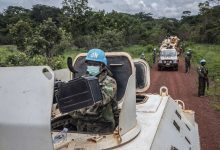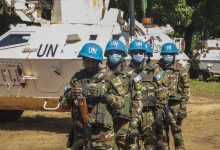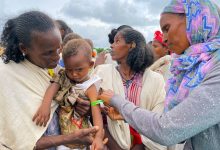‘They all died on the same day’: a Benin doctor on her fight against COVID-19
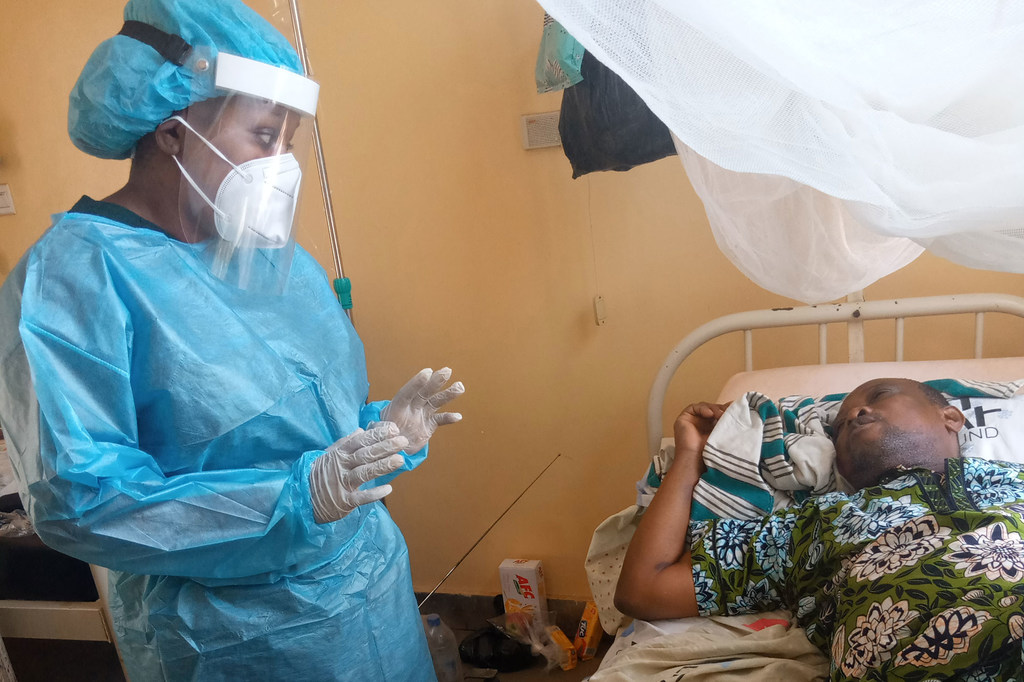 A doctor in Benin has been telling the UN about the challenging conversations she has had with the relatives of patients who have died from COVID-19, and how she has used her long medical experience to effectively lead a team of health care workers.
A doctor in Benin has been telling the UN about the challenging conversations she has had with the relatives of patients who have died from COVID-19, and how she has used her long medical experience to effectively lead a team of health care workers.
A doctor in Benin has been telling the UN about the challenging conversations she has had with the relatives of patients who have died from COVID-19, and how she has used her long medical experience to effectively lead a team of health care workers.
“The most painful moment in managing this crisis was in June 2020 when I had three severe cases of COVID-19. They all died on the same day.”
Dr. Rokhiatou Babio is one of the few women in Benin to lead a medical team on the frontline of the coronavirus pandemic, work which is supported by the United Nations in the north-east of the West African country. She recounts the shocking experience on that sombre and cruel day, a month into her new job.
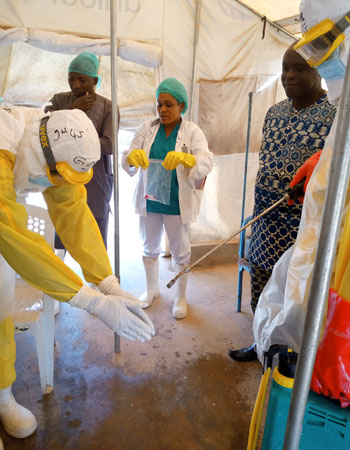 © Hermès Amoussouvi
© Hermès Amoussouvi
Under the supervision of Dr. Babio (centre), volunteers practice caring for COVID-19 patients.
“One of the three patients practically died in my arms”.
She falls into a deep silence and then continues. “You have to deal with the relatives after the deaths. The hardest part for them was not being able to take the mortal remains of their loved ones with them. It is difficult to convince them, even with the support of a psychologist”.
Dr. Babio is a general practitioner at the emergency department of the University Hospital of Borgou. She also supervises a team of 40 medical staff at the COVID-19 care centre of the Borgou Army Instruction Hospital, which admits coronavirus patients from five of Benin’s 12 departments – Atacora, Borgou, Alibori, Donga and Collines.
As an expert with a long experience of medical emergency and epidemic care, Dr. Babio has managed four health crises in her career. Faced with the COVID-19 pandemic, she says she was quickly able to inspire confidence in other “less experienced” team members.
“As soon as I took on this task, my goal was to save the lives of patients while protecting health care workers, most of whom had never managed an epidemic before. It was, therefore, necessary from the first days to establish a climate of confidence and make them want to manage COVID-19 patients,” she says.
Dr. Babio divided her staff into three multi-disciplinary, teams made up of men and women. To get the best out of each of them, she listened to issues from all staff members, both professional and personal.
“Each colleague has my number and can contact me at any time to voice their concerns. This lowers staff stress levels and ensures good management of the epidemic”, she adds.
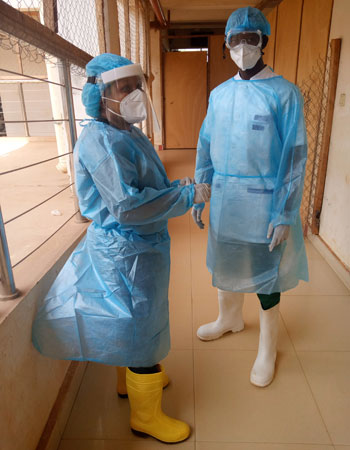 © Aboudou Souleymane
© Aboudou Souleymane
Dr. Babio (left) and Dr. Amoussouvi prepare to make their ward rounds.
In Benin some people are surprised to see a woman at the helm of the emergency department, more so as the COVID-19 case management coordinator. But she says she’s the right person for the job.
“Since 2016, I have been managing epidemics of viral hemorrhagic fevers in Lassa and my competence has been recognized at the international level,” she says.
The doctor stresses that women are good at managing conflicts. “We are first and foremost mothers and, therefore, born to show empathy”.
Her colleague, Dr. Hermès Melvis Amoussouvi, a general practitioner, agrees. He acknowledges that leadership is “genderless”.
“A leader should be able to inspire both women and men. But it is important, and it is increasingly noticeable, that women realize their capacity to do as much or even better than men. Women have their own potential, and we must embrace it,” Dr. Amoussouvi said.
The UN country team in Benin is working closely with the government to facilitate women’s integration in all sectors of society, including in medicine.
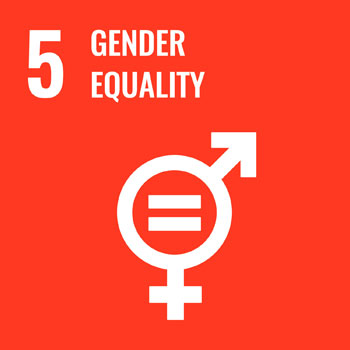 United Nations
United Nations
“We cannot build the future we want and achieve the Sustainable Development Goals (SDGs) without the full participation of all stakeholders in society, especially women,” says Salvator Niyonzima, who, as Resident Coordinator, is the most senior UN official in Benin.
He emphasizes the significance of the promotion of gender equality and women’s rights in a broader social context. “Gender equality, enshrined in SDG 5, is often measured by the existence of a legal framework to promote, enforce and monitor the application of the principles around non-discrimination based on sex.”
Dr. Babio says she’s determined to do her best for her patients. “What a pleasure to see our patients getting better. I feel re-energized when they are grateful for our support. Yes, we save human lives”.
Her competence is well recognized by her peers and patients. “I take my hat off to this very dynamic team under the leadership of a rigorous and methodical woman,” explains Ms. Hermine Fatoumbi, a patient who has just recovered from COVID-19.

